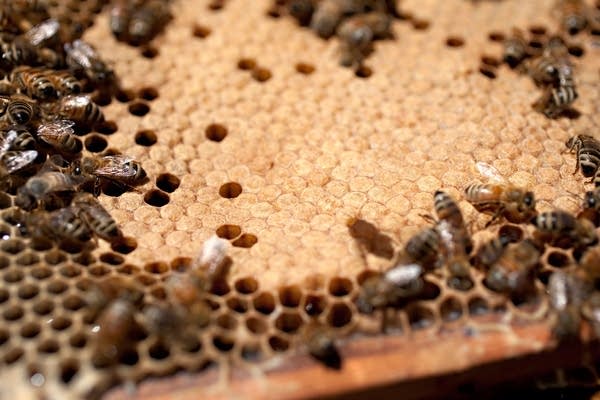Feds will pay farmers to create thousands of acres of bee habitats

A honey bee hive at the California & Minnesota Honey Farms in Eagle Bend, Minn.
Ann Arbor Miller/For MPR News 2011
Go Deeper.
Create an account or log in to save stories.
Like this?
Thanks for liking this story! We have added it to a list of your favorite stories.


